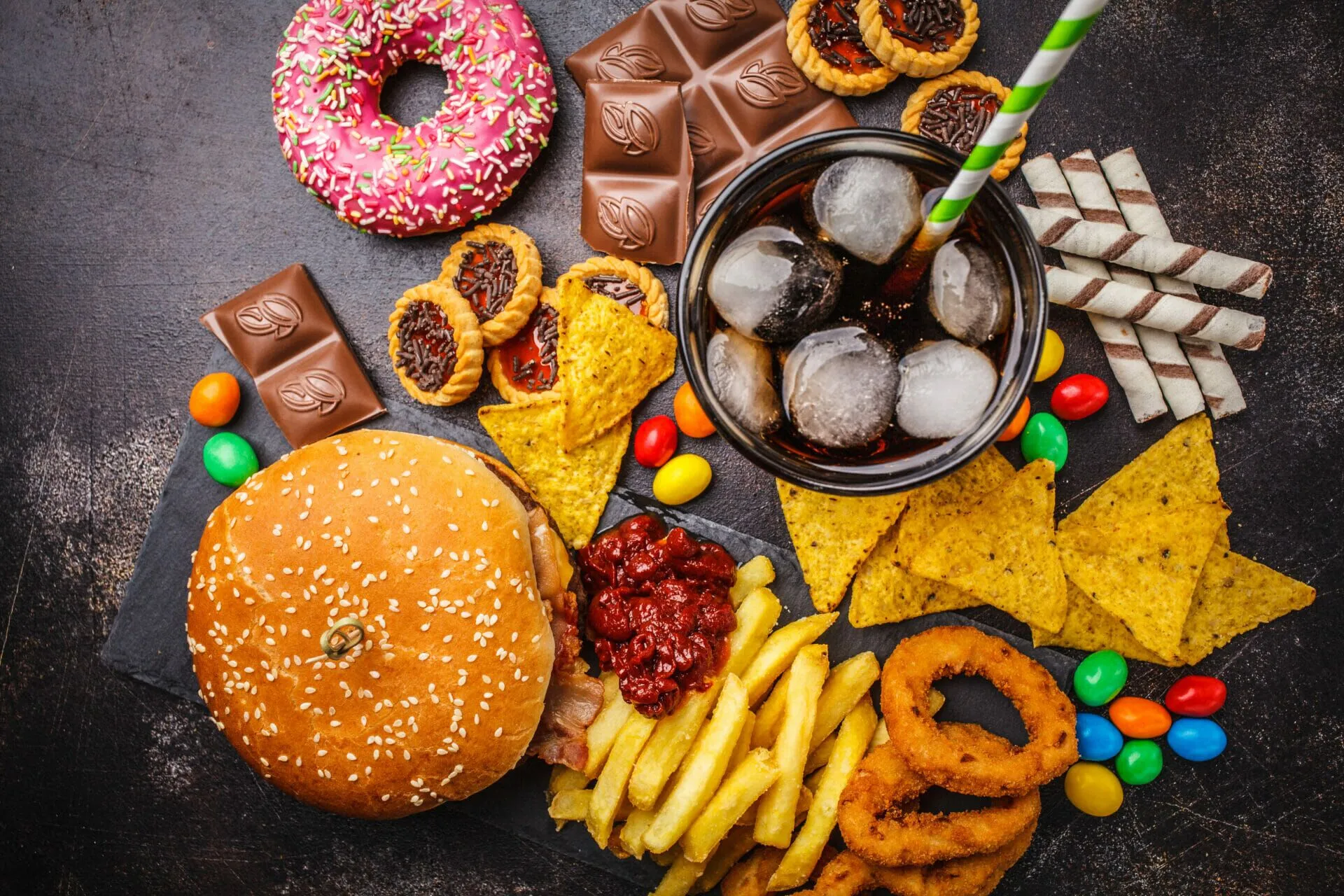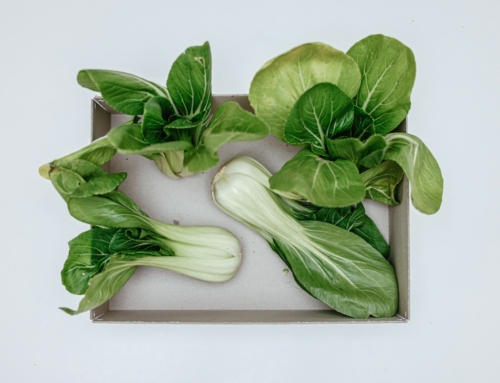Traditional Chinese Medicine (TCM) views the body as a complex system of energies and organs, each with its specific functions and elements. Food cravings are often interpreted as signals from the body indicating imbalances or needs within this system. In fact, food cravings can be seen as a way of self-medicating.
In Five Element Theory, there are 5 flavors: Sweet, Spicy/Pungent, Salty, Sour, and Bitter. Each flavor is associated with an organ system, as well as an element, emotion and predominant function or energetic effect. To better understand your food cravings, it can be helpful to understand each flavor, its associated organ systems, season, element, emotions, and functions.

The Five Flavors
Sweet
Organ System: Spleen and Stomach
Season: Late Summer
Element: Earth
Emotions: Worry, not feeling nurtured or grounded
Craving examples: Sugar and sweets, grains, dairy, candy, ice cream
Why you might crave sweet foods: Sweet cravings may indicate a need for energy or a sign of Spleen Qi deficiency, leading to poor digestion and fatigue. In moderation, sweet foods can help to strengthen Spleen Qi, but overconsumption can lead to further imbalances. Sweet cravings are often associated with feelings of fatigue, bloating, worrying, ruminating and spending a lot of time in thought, feelings of low self-confidence, or an imbalance between intellectual and physical activity.
Function: Sweet foods tonify Qi and boost the Qi of the Spleen-Pancreas-Stomach, which are in charge of digestion. The Spleen also governs the muscles, produces Blood. Eating mildly sweet foods may help you feel calmer and more relaxed. Excess sweetness, particularly from foods with refined and isolated sugars, can lead to difficulties controlling blood sugar levels and lead to organ system deficiency.
Examples of helpful bitter foods: Some naturally sweet foods include whole grains, fruits such as apples, bananas, papayas, grapes, blueberries, and root vegetables such as carrots, sweet potatoes, cinnamon, ginger, beans, brown rice, oats.
Spicy/Pungent
Organ System: Lungs and Large Intestine
Season: Fall
Element: Metal
Emotions: Grief and sorrow
Craving examples: Spicy food or hot sauce, wasabi, jalapeño or mints/gum
Why you might crave spicy/pungent foods: These flavors are thought to disperse Qi, stimulate circulation, and clear mucus. Craving spicy food may indicate a need to clear blockages and warm the body, but overconsumption can lead to excess heat. There also may be stagnation in the Lungs or Large Intestine, a need for movement, or removal of accumulated dampness and toxins. Long-standing or repressed grief and sorrow can also burden the Lungs, while suppressed emotions can cause the Large Intestine to get backed up.
Function: In moderation, spicy/pungent foods stimulate healthy circulation and can reduce blockages of Qi and Blood flow in the body, as well as stimulate the release of accumulations. Spicy foods, which have strong moving action, can induce sweat and mucus discharge.
Examples of helpful spicy/pungent foods: Turmeric, onions, scallions, radishes, ginger, wasabi (dry mustard), garlic, horseradish, and chili peppers.
Salty
Organ System: Kidneys and Bladder
Season: Winter
Element: Water
Emotions: Fear and willpower
Craving examples: Extra salt on meals, chips, cheese
Why you might crave salty foods: A desire for salty foods might indicate a Kidney imbalance or adrenal fatigue. Dehydration, electrolyte imbalance, loss of sleep, and heavy menstrual periods can set you up to crave salty foods. Kidney imbalance can also occur when experiencing too much fear, not enough fear, or feeling a lack of willpower. Adrenaline junkies often have Kidney imbalance.
Function: Salty foods offer strength, support the dissolving of masses, removes moisture and phlegm, and softens hardness.
Examples of helpful salty foods: Miso, sea salt, sea vegetables, brine pickles and umeboshi plum. However, excessive salt intake can harm the Kidneys and lead to imbalances in the body’s water and mineral levels.
Sour
Organ System: Liver and Gallbladder
Season: Spring
Element: Wood
Emotions: Frustration, anger or stress
Craving examples: Sour candy, citrus, sourdough bread, vinegar or fermented foods (kombucha, pickles), olive oil, olives
Why you might crave sour foods: Stress, feelings of anger, irritability, and frustration are all possible when the Liver is energy is imbalanced or stuck. Irregular menstrual cycles, dream-disturbed sleep, migraines and headaches and overall tension are signs of Liver imbalances. Those who crave sour may also crave salty, greasy, oily, fried foods.
Function: Sour foods are known for its astringing function, as well as moistening and softening (usually of tendons and ligaments), and supporting the flow of Qi of the Liver. Eating a moderate amount of sour foods may help you feel more flexible, more at ease, and more able to handle tough situations.
Examples of helpful sour foods: Fermented foods, such as sauerkraut, as well as vinegar, kefir, and sour fruits such as tart cherries, kiwis, tomatoes, grapefruits, oranges and lemon/lime.
Bitter
Organ System: Heart and Small Intestine
Season: Summer
Element: Fire
Emotions: Joy, love, hate
Craving examples: Coffee, chocolate, caffeine
Why you might crave bitter foods: Craving bitter can be a sign of the Heart needing balancing, or too much excess heat in the body. Bitter foods are believed to have a cooling effect, clearing heat and detoxifying the body. Craving bitter foods might indicate internal heat or inflammation, with the body seeking to balance itself through the intake of bitter foods. With heat and Heart imbalance, restlessness, irritability, emotional instability, anxiety, insomnia, a feeling of ungroundedness, and possible mania may occur.
Function: Bitter foods stimulate the Heart and Small Intestine and in general, have a cleansing action of removing heat and toxins. Eating bitter foods can help support emotional clarity, stimulate the bowels, bring down internal heat and fevers, reduce infections and support movement of blood circulation. However, too much bitterness can clear too much heat or overstimulate the organ systems. Those who are weak, thin, blood deficient, and often feel cold should not eat too much bitter food.
Examples of helpful bitter foods: Dandelion, parsley leaves, collard greens, mustard greens, arugula, kale, celery, corn, burdock root and sesame seeds.
Sources:
Keller, Dr. Lauren. Traditional Chinese Medicine and Food Cravings. 6 Mar. 2019.
Leggett, Daverick, and Katheryn Trenshaw. Helping Ourselves: A Guide to Traditional Chinese Food Energetics. 17 Apr. 2014.
Olanani. The TCM Breakdown on Your Cravings. Olanani, Accessed 10 Apr. 2024.





